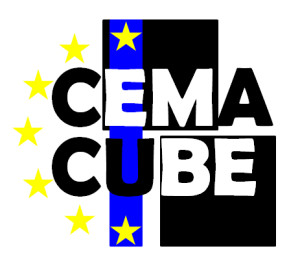Ostbayerische Technische Hochschule Regensburg, Germany (Technical University of Applied Sciences)
 B.Sc. Biomedical Engineering:
B.Sc. Biomedical Engineering:
Mechanical Engineering oriented program with focus on mechanics, fluidics and construction. The course is mainly taught in German, however there a some moduls in English.
210 Credits, 7 Semester
M.Sc. Medical Engineering (Medizintechnik):
The course offers a combination of simulation, experimental and theoretical topics. It is also very mechanical engineering oriented. Most moduls are taught in German.
90 Credits, 3 Semester
For further information on the study programms contact Sebastian Dendorfer ( sebastian.dendorfer[at] oth-regensburg.de ). For administration info on studying in Regensburg please contact the exchange office.
University of Groningen, the Netherlands
 B.Sc. Life Science & Technology with Major Biomedical Engineering:
B.Sc. Life Science & Technology with Major Biomedical Engineering:
The Biomedical Engineering programme has a focus on design, implants, tissue engineering, diagnostic instrumentation, medical imaging.
All courses are taught in Dutch, but an English version is in preparation.
180 Credits, 6 Semesters
M.Sc. Biomedical Engineering:
The Biomedical Engineering programme has three specialisations: Prostheses and Implant Design, Prostheses and Implant Interface Technology, Diagnostic Imaging & Instrumentation.
All courses are taught in English.
120 Credits, 4 Semesters
Trinity College Dublin, Ireland
 The M.Sc. in Bioengineering at Trinity College Dublin was established with the specific aim to provide engineers and scientists the education required to practice bioengineering and focus on important clinical needs in the medical devices industry and clinical settings in Ireland and internationally. This is a one-year program and consists of taught modules and a research project. This M.Sc. programme also provides an excellent foundation for further research and many graduates are currently pursuing Ph.D. research in diverse fields of biomedical engineering in universities in Europe and around the world.
The M.Sc. in Bioengineering at Trinity College Dublin was established with the specific aim to provide engineers and scientists the education required to practice bioengineering and focus on important clinical needs in the medical devices industry and clinical settings in Ireland and internationally. This is a one-year program and consists of taught modules and a research project. This M.Sc. programme also provides an excellent foundation for further research and many graduates are currently pursuing Ph.D. research in diverse fields of biomedical engineering in universities in Europe and around the world.
The MSc in Bioengineering now provides a number of streams which include:
- M.Sc. Bioengineering General Stream (>> Video)
- M.Sc. Bioengineering with specialisation in Neural Engineering (>> Video)
- M.Sc. Bioengineering with specialisation in Tissue Engineering (>> Video)
- M.Sc. Bioengineering with specialisation in Medical Device Design (>> Video)
The unique specialisation streams differentiate the M.Sc. in Bioengineering from other biomedical engineering postgraduate programmes and provides graduates a distinct competitive edge in the global medical device and biomedical engineering market place. Students can opt to study a General Bioengineering program or alternatively one of the three specialisations in Neural Engineering, Tissue Engineering or Medical Device Design. Some of the most exciting work in biomedical engineering today takes place in these three specialisation strands and it is envisaged that many of our graduates will become the next leaders in their field making real impact on the human condition and in the development of innovative medical devices and diagnostic tools. The MSc program also partners with the Common European Master’s Course in Biomedical Engineering (CEMACUBE) which includes Aachen (Germany), Dublin (Ireland), Ghent (Belgium), Groningen (The Netherlands) and Prague (Czech Republic). In recognition of its excellence in teaching activity, the M.Sc. in Bioengineering was awarded the Best Postgraduate Course of the Year in Engineering and also awarded the Engineers Ireland Excellence in Education Award in 2012.
For more information on course content please visit our website: http://www.tcd.ie/bioengineering/msc
Or contact us via email: tcbe@tcd.ie
European M.Sc. Biomedical Engineering CEMACUBE
 This prestigious Master’s Programme is a joint project between six partners, the universities of Groningen (the Netherlands), Aachen (Germany), Dublin (Ireland), Ghent and Brussels (Belgium), and Prague (Czech Republic). Students are heavily selected and must follow the first and the second year different universities without delay. Some partial scholarships are available.
This prestigious Master’s Programme is a joint project between six partners, the universities of Groningen (the Netherlands), Aachen (Germany), Dublin (Ireland), Ghent and Brussels (Belgium), and Prague (Czech Republic). Students are heavily selected and must follow the first and the second year different universities without delay. Some partial scholarships are available.
All courses are taught in English.
120 Credits, 4 Semesters
For further information on the study programmes contact Bart Verkerke ( g.j.verkerke[at] rug.nl ). Admission information can be found here.
